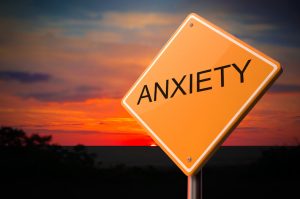
I shut down. I can’t think. I don’t know what to say or how to respond. It happens nearly every time I talk to people.
John F
… then I no longer feel in control. I speak so quickly that I can’t catch my breath. What comes out of my mouth makes no sense. I feel like a complete idiot.
Katherine M
(Their) behavior is governed by an anxiously obsessive desire for the maintenance of sameness.
Leo Kanner
For many adults with Autism Spectrum Disorder, stress and anxiety are constant companions. A recent study found that more than half of the adults who had been diagnosed with ASD met the criteria for at least one anxiety disorder. While most people experience frustration, stress or anxiety in everyday life situations, for those with Autism that anxiety can be overwhelming, at times even crippling.
Why is this? What is it about Autism Spectrum Disorder that causes so many to live with ongoing worry, fear, even dread? Is the anxiety that people with ASD endure different from the everyday anxiety that we all occasionally experience? Can something be done about it?
What Triggers Anxiety for an Adult with Autism Spectrum Disorder?
It is easy to identify stressors in the life of someone with Autism Spectrum Disorder, given their lack of communication skills and their difficulty interpreting social interactions. Their world is scary and unpredictable. It is full of people who want to talk, who are generally intolerant of social clumsiness, and who look with suspicion at those with a hyper-focus on specific subjects of interest. When you lack the intuitive ability to generalize, analyze social cues, and correctly assess normal ways of speaking, every day is a new challenge.
However, these difficulties, in and of themselves, don’t cause anxiety. They are, instead, the consequences of a deeper problem, one that leads to social difficulties, communication deficits and narrowly focused special interests, the so-called “triad of impairments” that characterize Autism.
This deeper problem was identified by Leo Kanner and Hans Asperger, two psychiatrists who, in the 1940s independently recognized autism and Asperger’s (Autism Spectrum Disorder), respectively. The problem is a profound lack of emotional contact with other people and an insistence on sameness.
People with Autism Spectrum Disorder are not driven by the typical desire to connect emotionally with others. As a result, their motivation to communicate is impaired, as are their means of communicating. Complicating this is a pervasive need to keep their world, both within and around them, fixed and constant, a need that results in rigidity of behavior and resistance to change.
Why Anxiety is so Pervasive
Imagine avoiding, disregarding, ignoring, and shutting out emotional contact with people. Add to that a strong resistance to change. What happens?
For people with Autism Spectrum Disorder, the result is perpetual anxiety. Not only is it virtually impossible to avoid contact with other people but that contact has to, in some form or another, involve emotion. People have feelings. While these feelings may not be expressed explicitly, they are an indispensable part of human relationships. One can’t avoid them.
Such is the case for the person with Autism Spectrum Disorder who wishes not to connect emotionally but can’t avoid it and who is unwilling and, in some cases unable, to change. That person experiences a disconnect from what is intrinsically self-important and the reality of a world with other people.
Persistent feelings of tension and fear are common among adults with Autism Spectrum Disorder, as are fears of judgement and criticism by other people, low self-esteem, feelings of inferiority and inadequacy, and generally low, but at times prominent, levels of stress. They are outcomes of a drive to avoid affective contact with others and to crave sameness.
Can One Become Less Anxious?
The simple answer is yes. In a forthcoming blog, I will explain how change is possible for someone with Autism Spectrum Disorder. For now, let me say that human characteristics can be molded, shaped, and modified even though one is born with them. The capacity of human beings to change is far greater than we often imagine.
